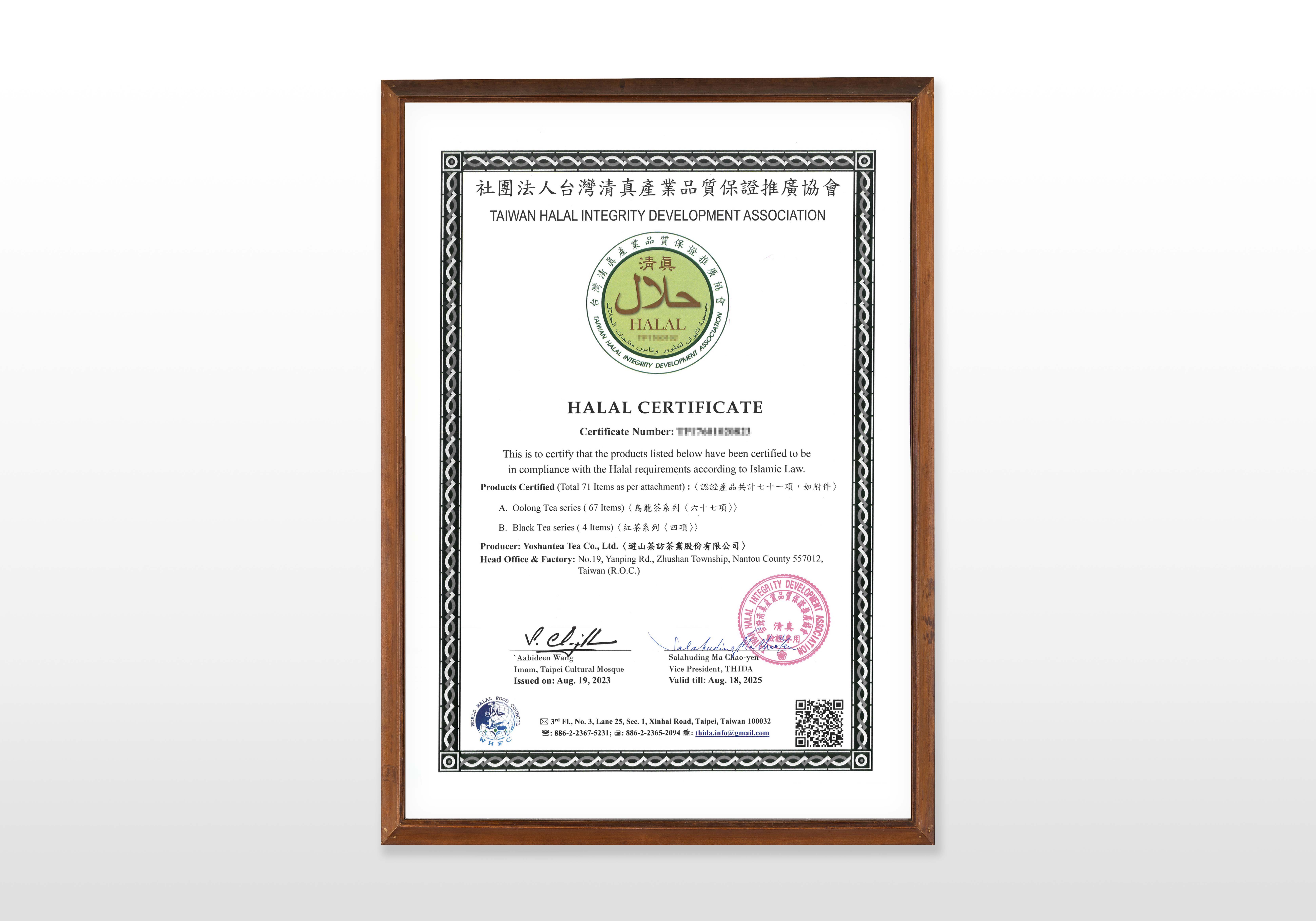Hello everyone,
I’m Andy, a tea enthusiast.
In the global food market, Halal certification has become a symbol of quality and trust.
As more people from diverse cultural backgrounds begin to enjoy Taiwanese tea,
the question “Does tea need to be Halal certified?” has become a significant concern for many producers.
Let’s take a look at what Halal certification means,
what to watch for in the application process, and some important but often overlooked details.
1. What is Halal Certification?
“Halal” means “permissible” under Islamic law, and it applies not only to food but also to everyday products, behaviors, and beliefs.
For food products, Halal certification is a religious compliance system ensuring that every stage—from ingredient sourcing, equipment use,
cleaning and disinfection, packaging, to storage and transportation—complies with Islamic law (Shariah).
It’s not just about food safety; it’s a sign of respect for cultural and religious values.
2. What to Watch Out for When Certifying Tea?
Although tea is a natural plant product, obtaining Halal certification still requires attention to the following:
1. Ingredient Sourcing
Halal certification emphasizes source traceability.
Pure tea leaves are usually fine, but if you add flavorings, dried fruits, petals, or natural extracts, ensure they contain no alcohol or forbidden ingredients.
It's recommended to use Halal-certified additives and processing aids, all of which must be traceable.
2. Packaging and Labeling
The principle of “once opened, no longer Halal” applies: once a package is opened, the product loses Halal status. Packaging must not include:
- Nudity or suggestive images
- Pigs or pork-related graphics
- Alcohol-related or religious symbols
- Misleading phrases
Names like “Whiskey Oolong,” “Non-alcoholic Beer,” or “Blessing Tea” may violate Halal principles.
3. Storage and Operating Environment
Halal and non-Halal products must be stored separately with clear labeling.
Shared vehicles or warehouses are not allowed. Eating and religious rituals are prohibited in processing areas,and cross-contamination must be strictly avoided.
4. Processing and Cultural Sensitivity
Religious blessings or rituals during production are not allowed.
Even if they don’t change the product's content, their religious nature could violate Halal certification requirements.
3. How is Halal Certification Different from Other Food Certifications?
Certifications like HACCP and ISO22000 focus on risk management and food hygiene.
FSSC22000 covers the overall safety and traceability of the supply chain.
Halal certification, however, is product-specific. It ensures that the product is made with permissible ingredients,
free from religious taboos, produced in a clean process, and securely packaged.
What makes Halal unique is its religious foundation. For Muslim consumers, it’s not just about food—it’s an act of faith.
4. If a Factory is Halal Certified, can it do OEM for Others?
No.
Halal certification applies to specific products, not the entire factory.
Even if your facility is certified, that status does not extend to OEM products.
The brand owner or OEM producer must apply separately and pass the required review to claim Halal status.
5. Lesser-Known Halal Rules
Commonly overlooked but critical rules include:
- No pork, alcohol, blood, or their derivatives.
- No animals that died from illness, falling, fighting, or wild/amphibious/omnivorous animals.
- Meat must be slaughtered by a Muslim following Islamic rules: a sharp knife, cut at the throat, and reciting God's name.
- No imitation of forbidden items, e.g., vegan ham, non-alcoholic beer, liquor-scented tea.
- Some sugar is refined using bone char; verify the source.
- Alcohol cannot be used as an ingredient. If used for cleaning, it must evaporate completely and come from a non-brewing source.
- Naturally fermented products (like soy sauce) must have < 0.5% residual alcohol.
- Equipment previously in contact with alcohol or pork requires one-time ritual cleaning:rinse 7 times, once with soil,
and under Halal association supervision.
If re-contaminated, the equipment cannot be reused in Halal production.
6. More Info | Halal Certification Contact
Taiwan Halal Integrity Development Association (THIDA)
Address: 3F, No. 3, Lane 25, Sec. 1, Xinhai Rd., Taipei City
Phone: +886-2-2367-5231
Fax: +886-2-2365-2094
Email: thida.info@gmail.com
Website: www.thida.org
Bonus Thought:
If a snack like “Kuai-Kuai” (a Taiwanese superstition snack to ‘keep machines obedient’) is placed on equipment, does it comply with Halal certification?
#yoshantea #taiwantea #dongdingtea #oolongtea #teafacotry #FSSC22000 #safetea #halaltea #halalcertification #teaknowledge #taiwanteaexport
